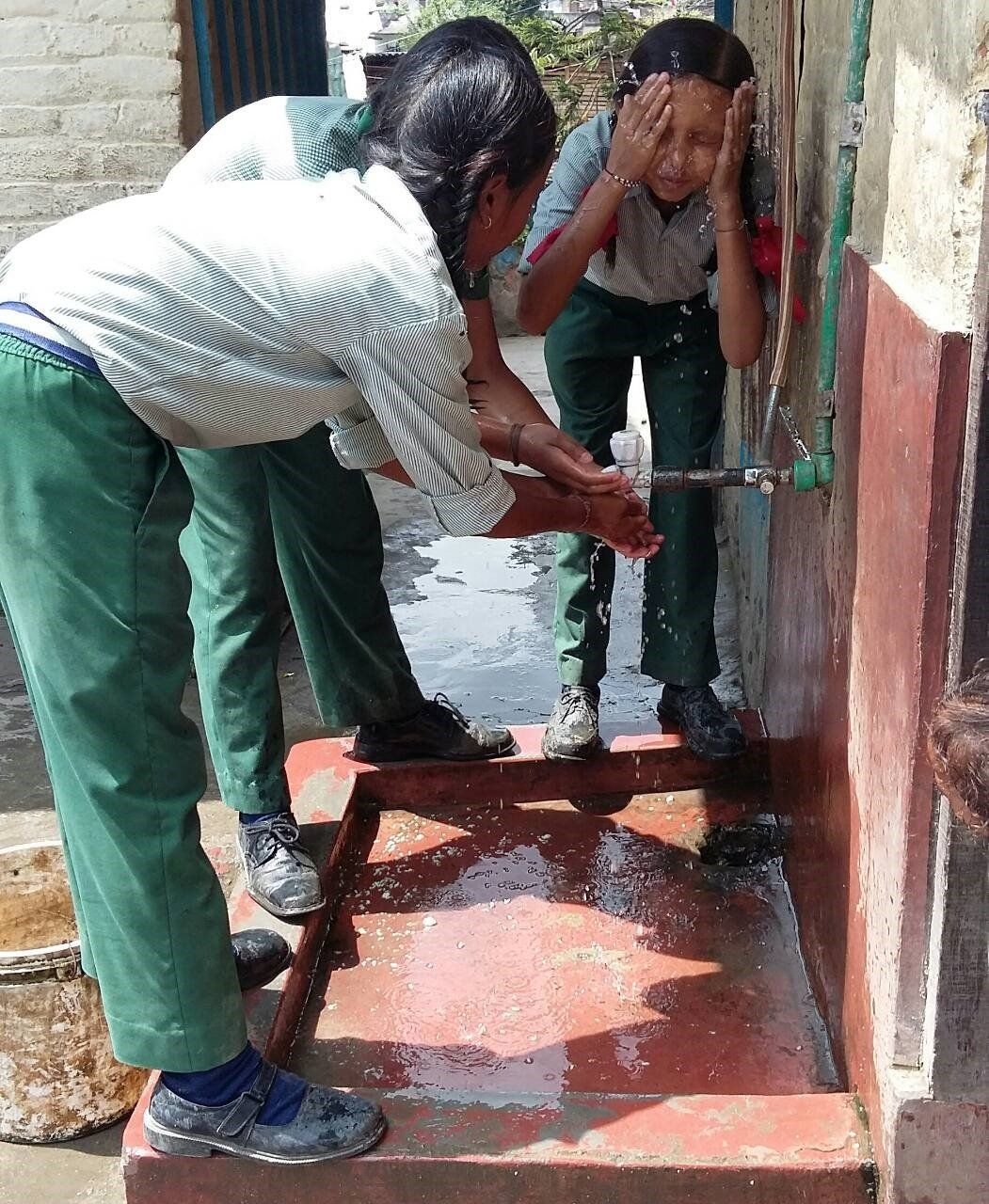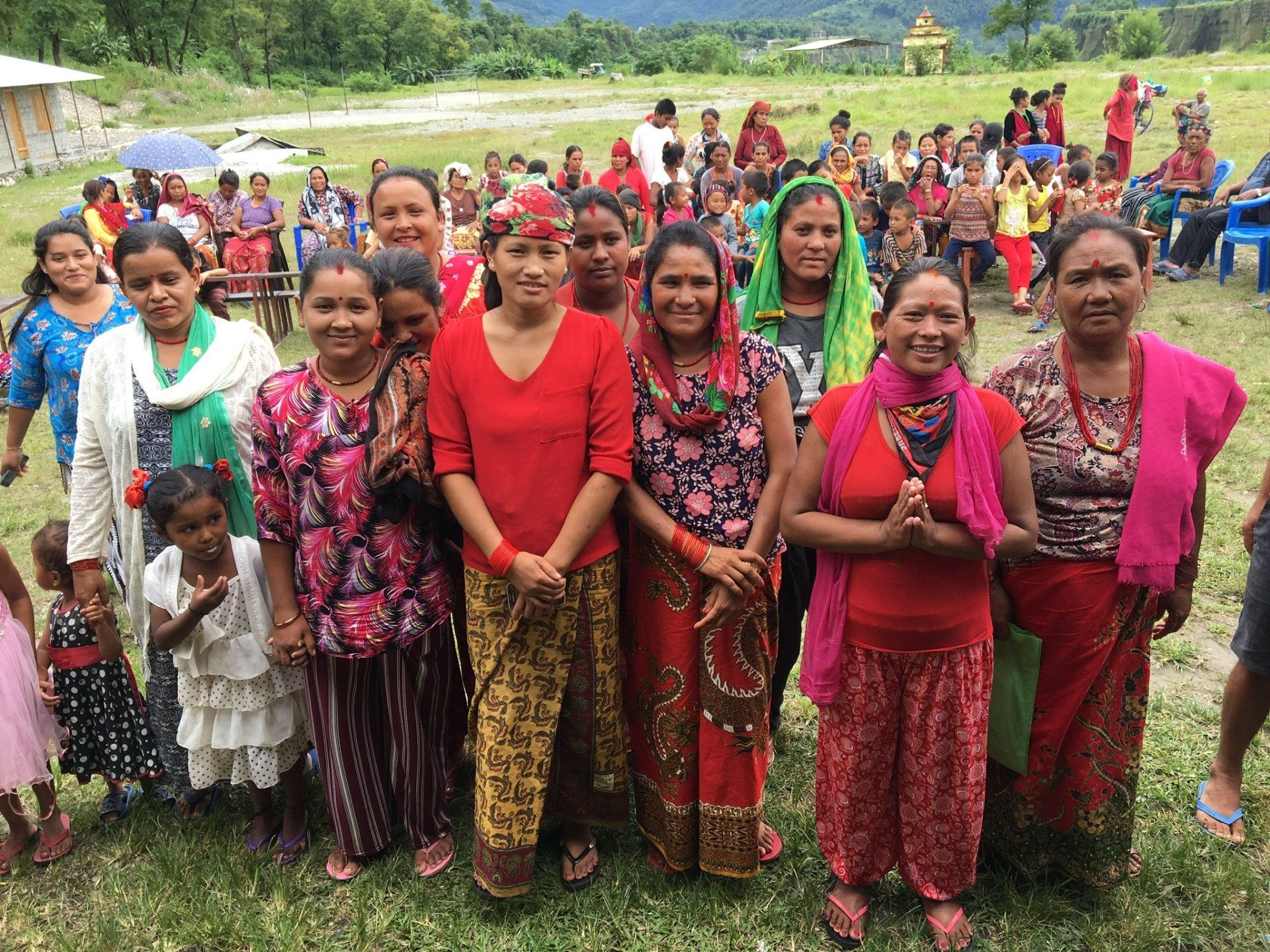Nepal
Nepal
KETAAKETI works with two local non-governmental organizations in Nepal:
SPOWC (since 2007)and CDSN(since 2018)
KETAAKETI works with two local non-governmental organizations in Nepal:
SPOWC (since 2007) and CDSN (since 2018)
Why Nepal?
Nepal is a landlocked country located between India and China. The country is less than half the size of Germany, with around 30 million inhabitants with many different ethnic groups, languages, religious customs and the Hindu caste system.
Geographically, there are immense contrasts: Northern and Eastern Nepal lie in the middle and high mountains of the Himalayas, in the south the land is flat and the climate is subtropical.
Nepal is one of the poorest countries in Asia, with around 34% of the population living on less than $2 a day. The country and its people suffer from unstable political conditions and recurring natural disasters (earthquakes, floods, landslides).
Several million Nepalis work abroad. Their money transfers are, alongside tourism, the most important source of foreign currency.
Approximately 40% of adults are illiterate. Child labor, which particularly affects girls, is a major problem. Child marriage is prohibited, but three out of four girls are married in their teens. The lowest castes or casteless people, the Dalits, are particularly affected.
Rajesh Regmi (initiator of SPOWC): "We have everything except money."
Despite compulsory schooling since 1975, only 89% of children are enrolled in primary school. Poverty and social status have an impact on education: parents often cannot afford the money for materials and school uniforms.
The health care system is poorly developed. Over 50% of the population has no access to medicine and there are only about 21 doctors per 100,000 people. Care is particularly poor in rural areas.
Why Nepal?
Nepal is a landlocked country located between India and China. The country is less than half the size of Germany, with around 30 million inhabitants with many different ethnic groups, languages, religious customs and the Hindu caste system.
Geographically, there are immense contrasts: Northern and Eastern Nepal lie in the middle and high mountains of the Himalayas, in the south the land is flat and the climate is subtropical.
Nepal is one of the poorest countries in Asia, with around 34% of the population living on less than $2 a day. The country and its people suffer from unstable political conditions and recurring natural disasters (earthquakes, floods, landslides).
Several million Nepalis work abroad. Their money transfers are, alongside tourism, the most important source of foreign currency.
Approximately 40% of adults are illiterate. Child labor, which particularly affects girls, is a major problem. Child marriage is prohibited, but three out of four girls are married in their teens. The lowest castes or casteless people, the Dalits, are particularly affected.
Rajesh Regmi (initiator of SPOWC):
"We have everything except money."
Despite compulsory schooling since 1975, only 89% of children are enrolled in primary school. Poverty and social status have an impact on education: parents often cannot afford the money for materials and school uniforms.
The health care system is poorly developed. Over 50% of the population has no access to medicine and there are only about 21 doctors per 100,000 people. Care is particularly poor in rural areas.
SPOWC (Kathmandu/Nepal) is KETAAKETI ‘s first partner organization. The meeting of the founder of KETAAKETI, Anneli-Sofia Raecker, with the head of SPOWC, Rajesh Regmi, in 2006 represents one of the key moments for the development of the model: Rajesh Regmi, a committed, educated Nepali who had already founded a slum school, works – like all other KETAAKETI partners – on his own initiative and self-determination right from the start.
Through this partnership, a steadily expanding network has been created that paves a way out of the endless cycle of poverty. This involves great commitment, strong communication and constructive further development, involving all participants in the microfinance and school projects.
By 2026, SPOWC will have enabled around 3,700 women to start their own businesses and over 18,000 children to attend school through 37
seed funding projects.
Partnership is the basis of cooperation with the local non-governmental organization, with which KETAAKETI has been working closely for many years.
SPOWC (Kathmandu/Nepal) is KETAAKETI ‘s first partner organization. The meeting of the founder of KETAAKETI, Anneli-Sofia Raecker, with the head of SPOWC, Rajesh Regmi, in 2006 represents one of the key moments for the development of the model: Rajesh Regmi, a committed, educated Nepali who had already founded a slum school, works – like all other KETAAKETI partners – on his own initiative and self-determination right from the start.
Through this partnership, a steadily expanding network has been created that paves a way out of the endless cycle of poverty. This involves great commitment, strong communication and constructive further development, involving all participants in the microfinance and school projects.
By 2026, SPOWC will have enabled around 3,700 women to start their own businesses and over 18,000 children to attend school through 37
seed funding projects.
Partnership is the basis of cooperation with the local non-governmental organization, with which KETAAKETI has been working closely for many years.
SPOWC projects and concrete implementation
SPOWC projects and concrete implementation
KETAAKETI Seed funding
Providing security of supply for women and families and simultaneously stabilizing their children's school attendance through interest-free seed funding. An opportunity for a more self-determined life through continuous passing on - village by village!
Slum School in Kathmandu
The KETAAKETI-SPOWC English School in Kathmandu offers free education for children living in poverty. The school is also the administrative headquarters of SPOWC.
KETAAKETI Seed funding
Providing security of supply for women and families and simultaneously stabilizing their children's school attendance through interst-free seed funding. An opportunity for a more self-determined life through continuous passing on - village by village!
Slumschule
Slum School
The KETAAKETI-SPOWC English School in Kathmandu offers free education for children living in poverty. The school is also the administrative headquarters of SPOWC.
CDSN -
Children Development Society Nepal
Since autumn 2018, CDSN, a newly founded non-profit organization initiated by KETAAKETI, has been supporting school children from the poorest families in the Pokhara region of Nepal. It is led by Khem Adhikari.
Five projects have been launched at very small governmental schools. Most children in the Pokhara region attend private schools; those who cannot afford the financial outlay are left with governmental schools. These are very poorly equipped in terms of teachers and school materials. CDSN supports the children with school uniforms and school materials and seed funding for the mothers, who have little income, always with the aim of permanently stabilizing the children's continued school attendance.
CDSN -
Children Development Society Nepal
Since autumn 2018, CDSN, a newly founded non-profit organization initiated by KETAAKETI, has been supporting school children from the poorest families in the Pokhara region of Nepal. It is led by Khem Adhikari.
Five projects have been launched at very small governmental schools. Most children in the Pokhara region attend private schools; those who cannot afford the financial outlay are left with governmental schools. These are very poorly equipped in terms of teachers and school materials. CDSN supports the children with school uniforms and school materials and seed funding for the mothers, who have little income, always with the aim of permanently stabilizing the children's continued school attendance.
CDSN projects and concrete implementation
CDSN projects and
concrete implementation
Seed funding
Providing security of supply for women and families and simultaneously stabilizing their children's school attendance through interest-free seed funding (to be passed on). An opportunity for a more self-determined life through continuous passing on - village by village!
Microfinance
Providing security of supply for women and families and simultaneously stabilizing their children's school attendance through microfinance. An opportunity for a more self-determined life through continuous passing on - village by village!








